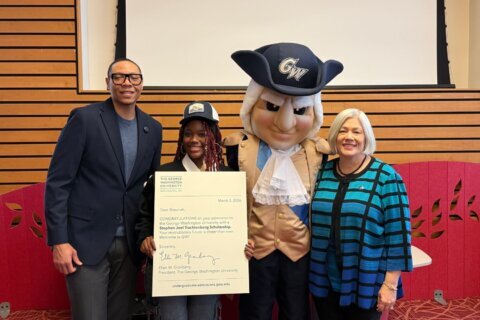This video is no longer available.
Pro-Palestinian protesters returned to the George Washington University and pitched tents on campus Thursday night, just one day after police cleared an encampment on the D.C. campus, arresting dozens of people.
A group of around 100 pro-Palestinian protesters linked arms and encircled several tents along F Street in Foggy Bottom on Thursday night. Demonstrators chanted for around five hours, at times in heavy rain.
Around 11:30 p.m., D.C. police gave its first warning to the demonstrators to disperse from the area or face arrests for unlawful entry and trespassing on campus property. Many protesters could be seen collecting their signs and packing up tents and leaving the area.
After the sixth warning, MPD officers linked arms and began advancing on the protesters until 19th and F streets, according to 7News’ Christian Flores who was on the scene and told WTOP.
Among several chants recited by protesters, as reported by GW’s university student newspaper, The Hatchet, was a rhetorical question calling attention to violence experienced at the hands of police: “Hey cops, what do you say, how many students will you beat today?”
Flores said many of the organizers and protesters decided to leave on their own.
“We haven’t seen any [response from university officials] late this evening. It is pretty calm,” Flores said as protestors were leaving the area of the university. “So it does appear that there was a plan in place by MPD to not only disperse the protesters, but also to make sure there wasn’t any sort of second gathering after that dispersal order.”
Police confirmed to WTOP that one arrest was made for assault on an officer.
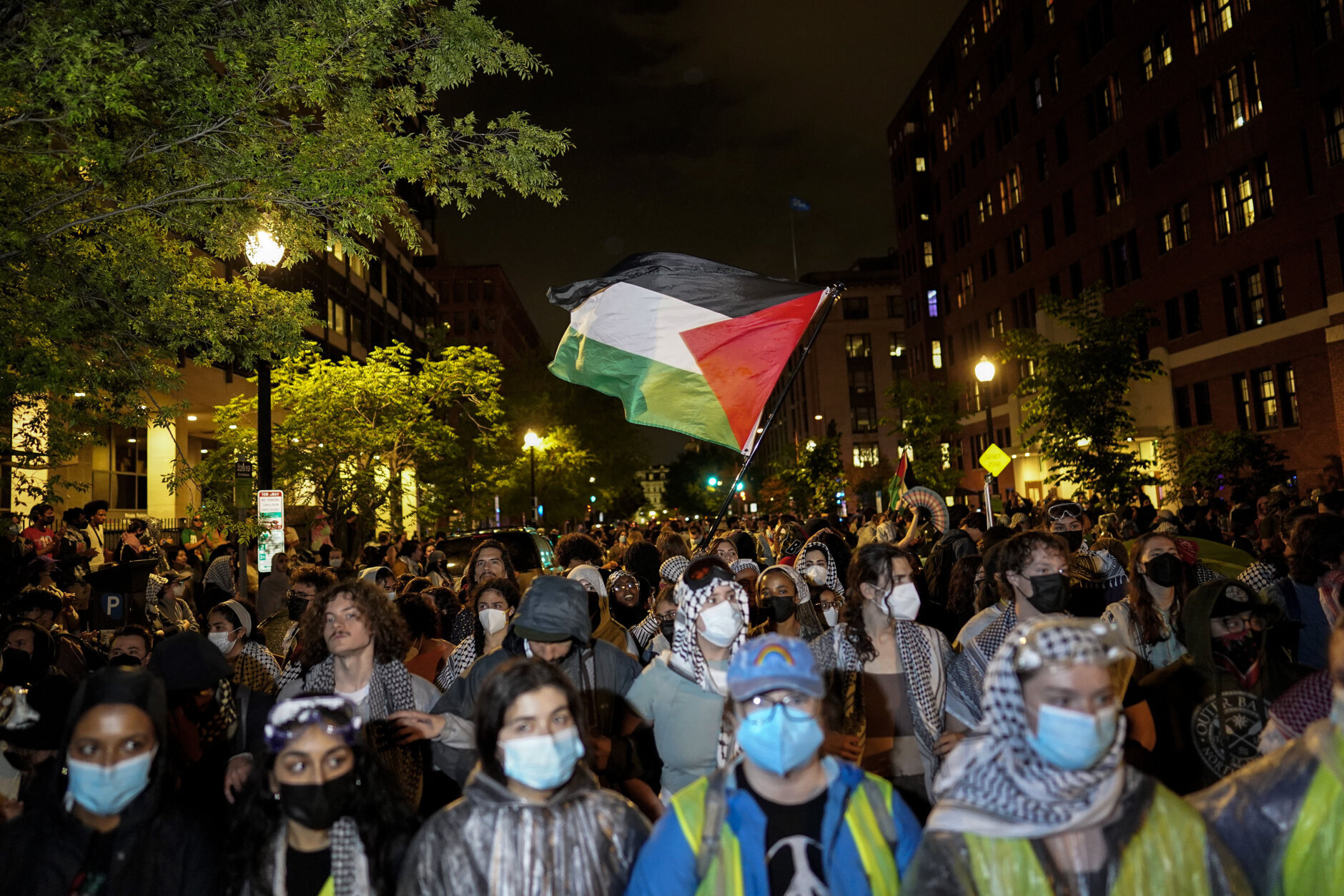
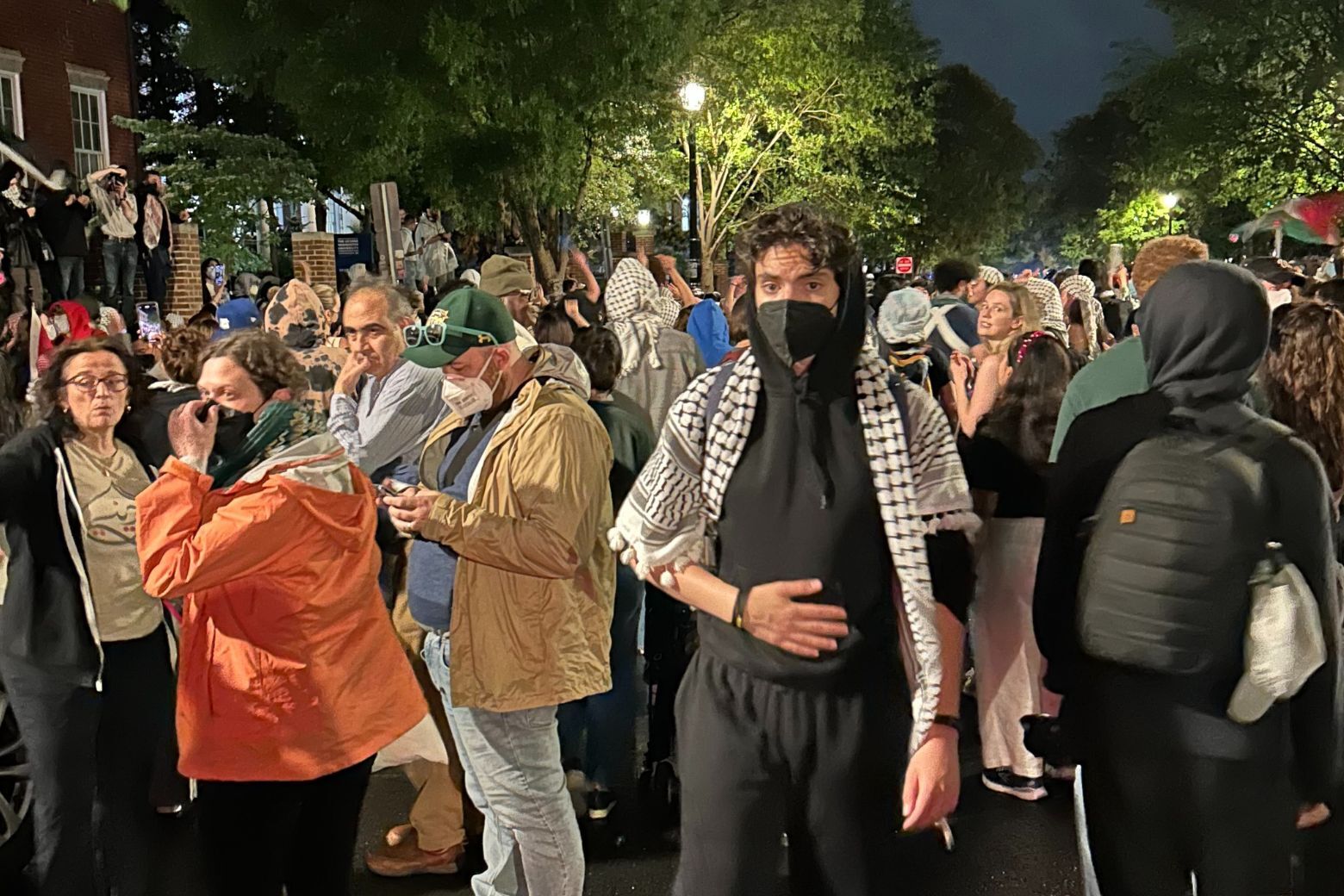
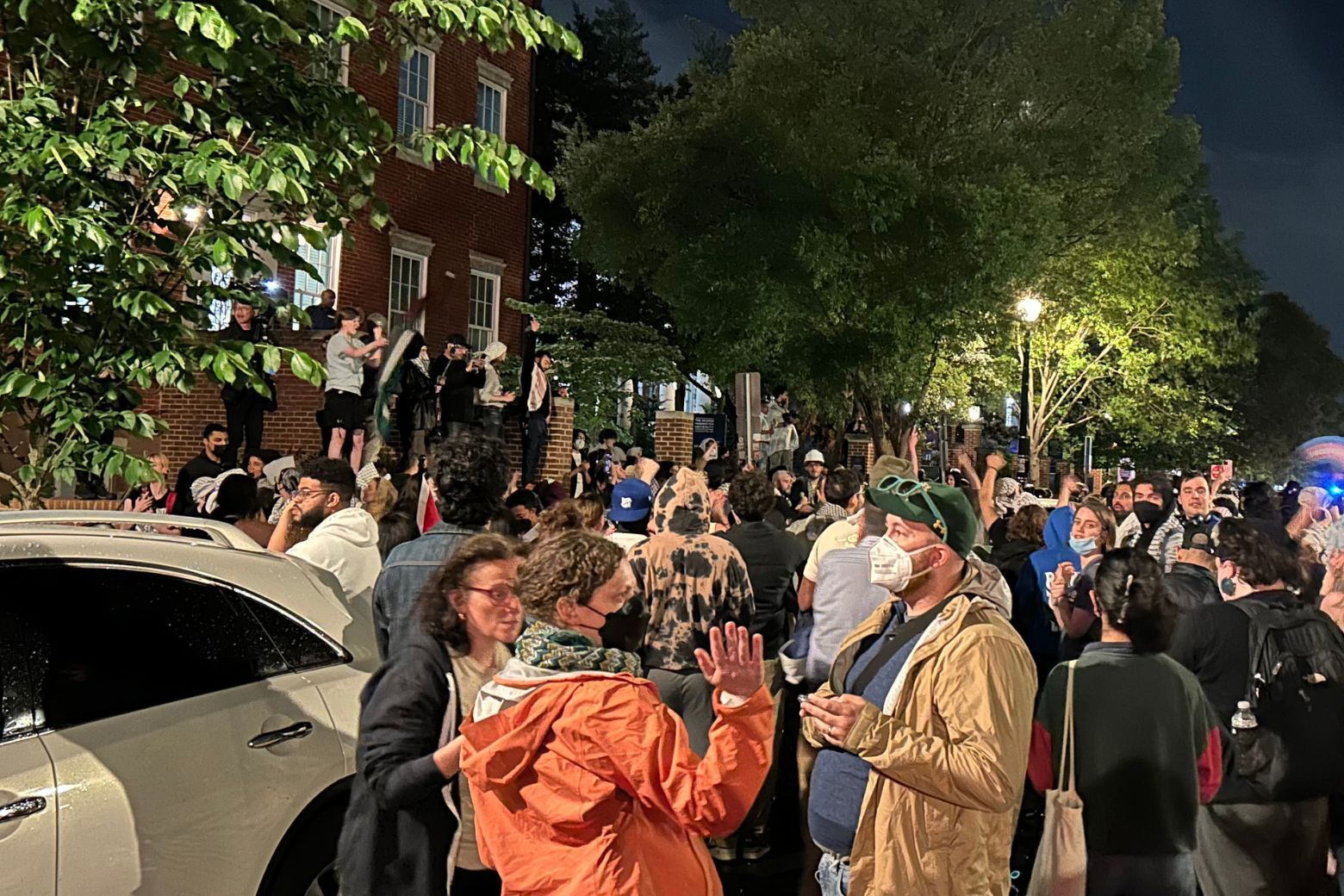

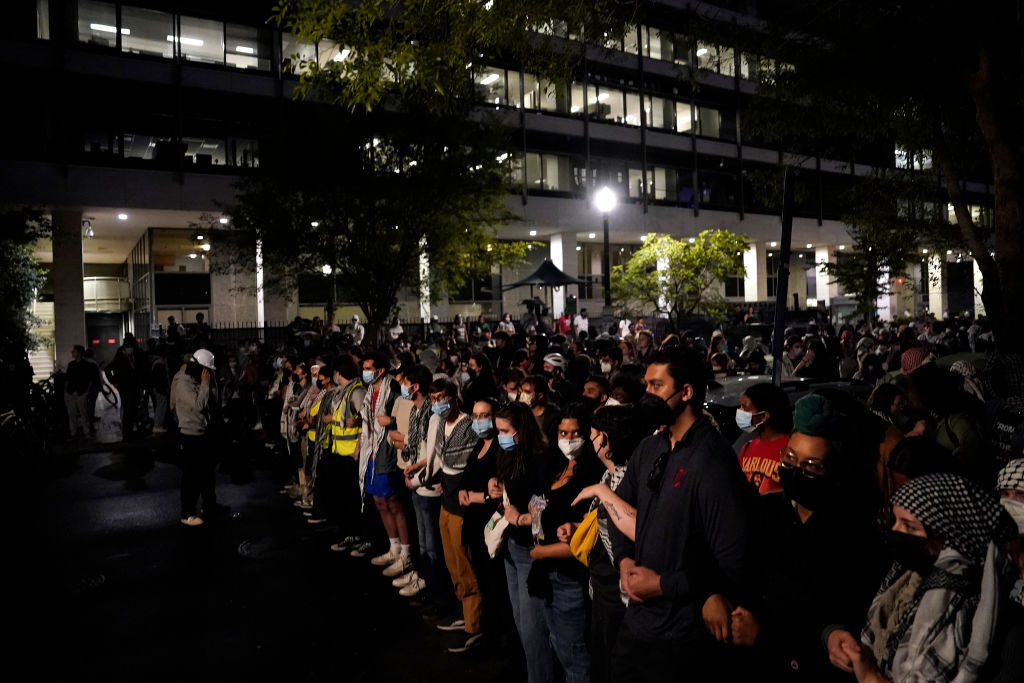

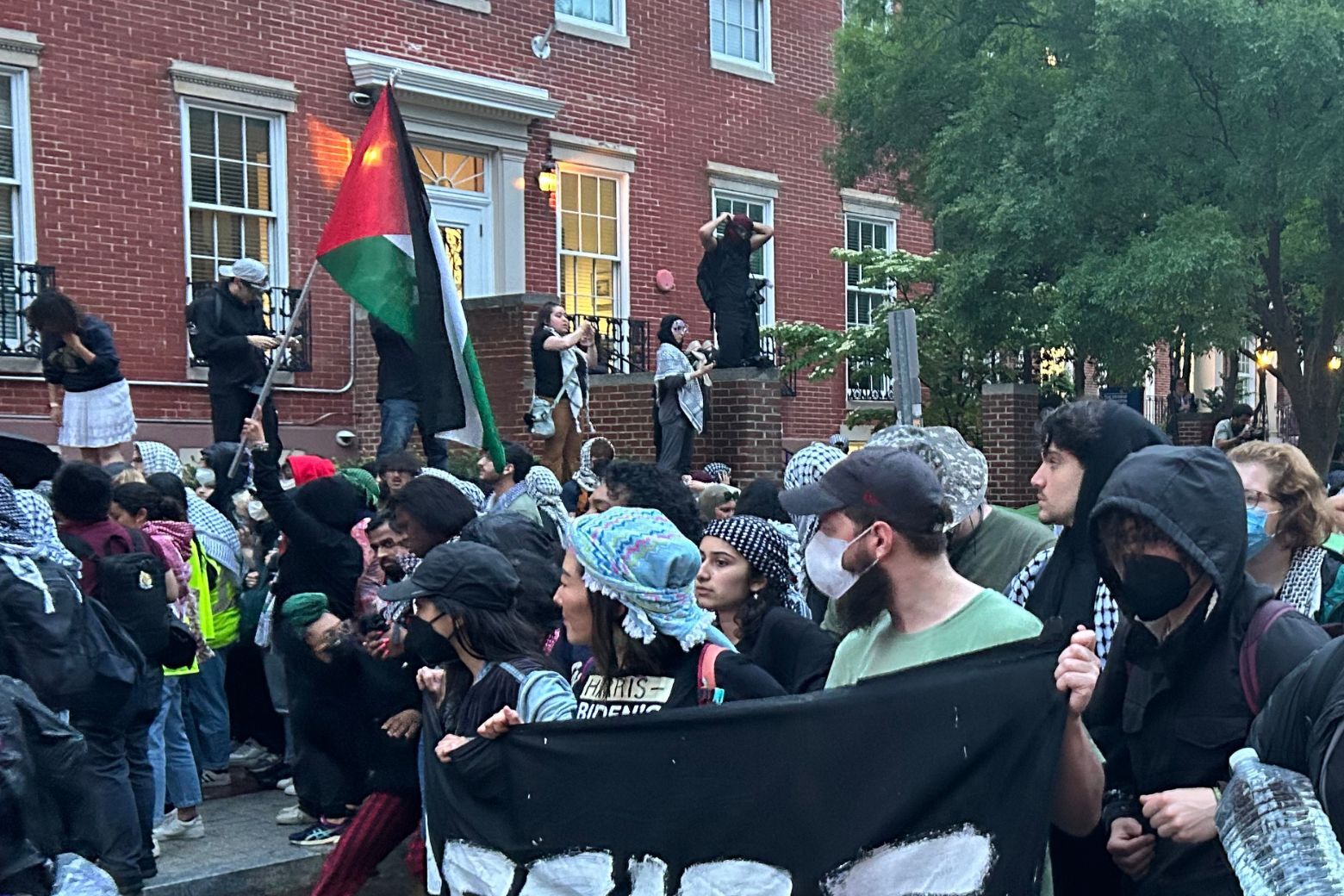
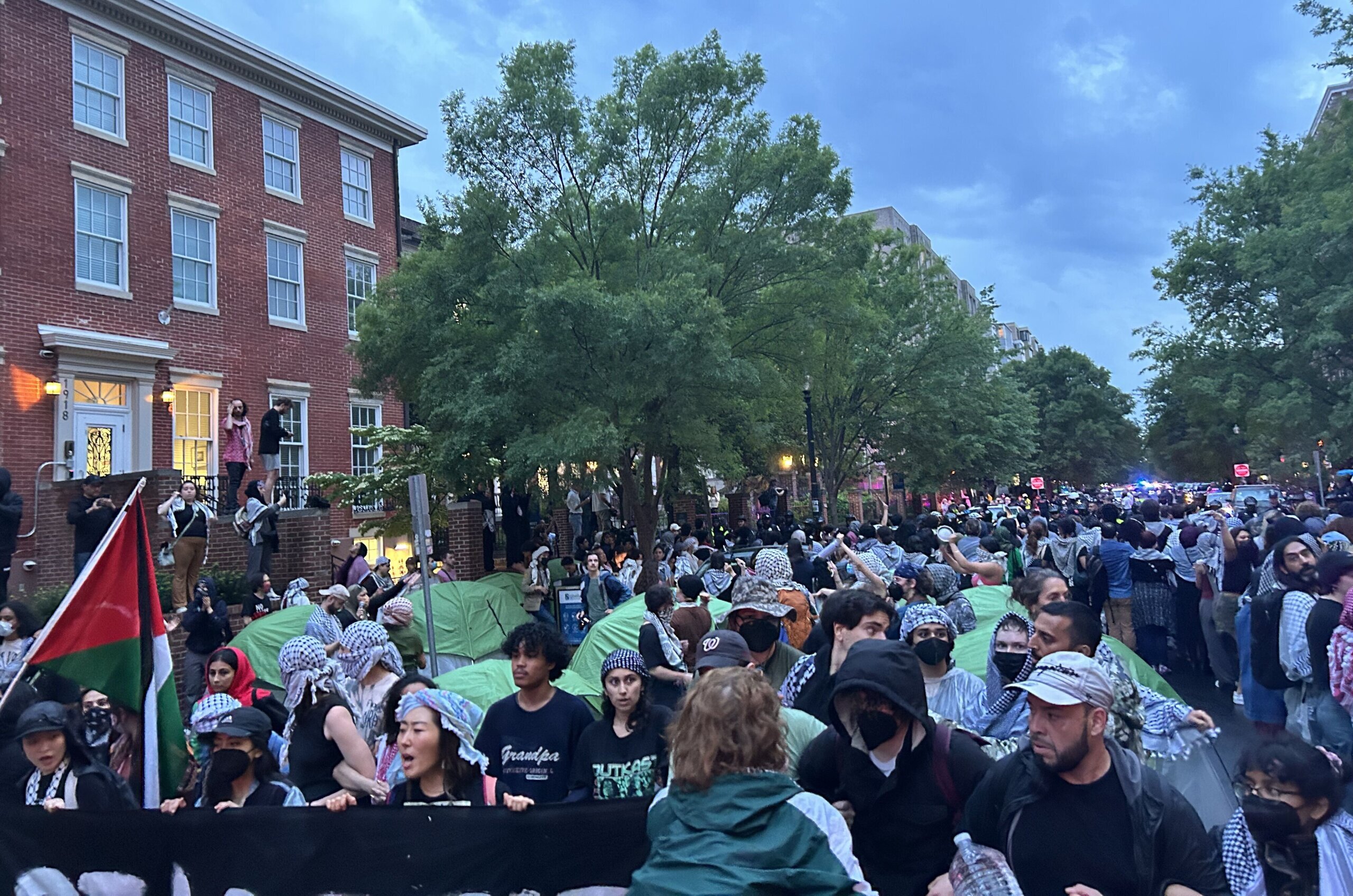
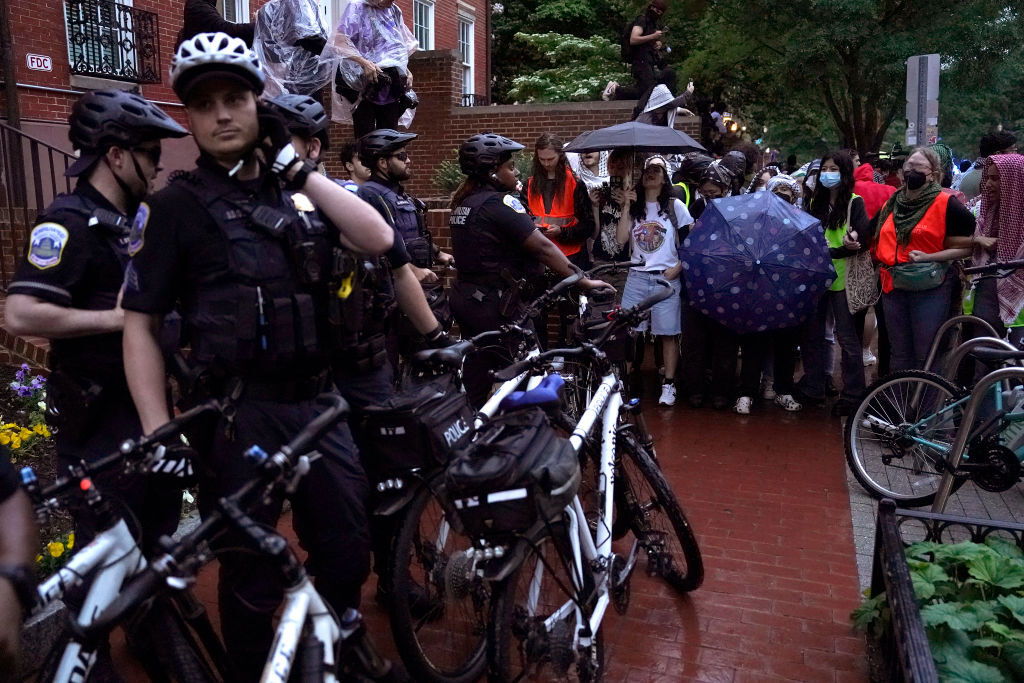
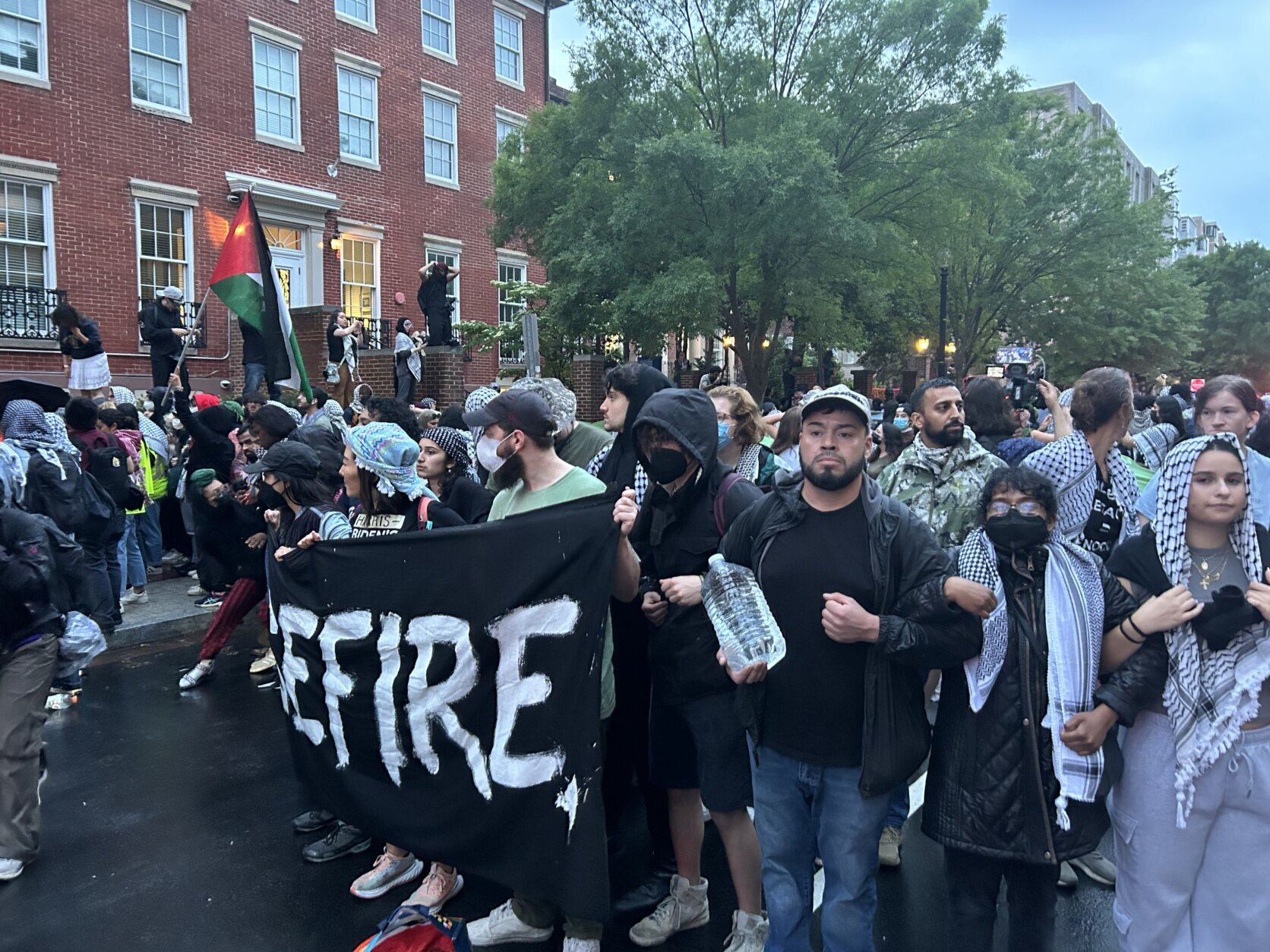
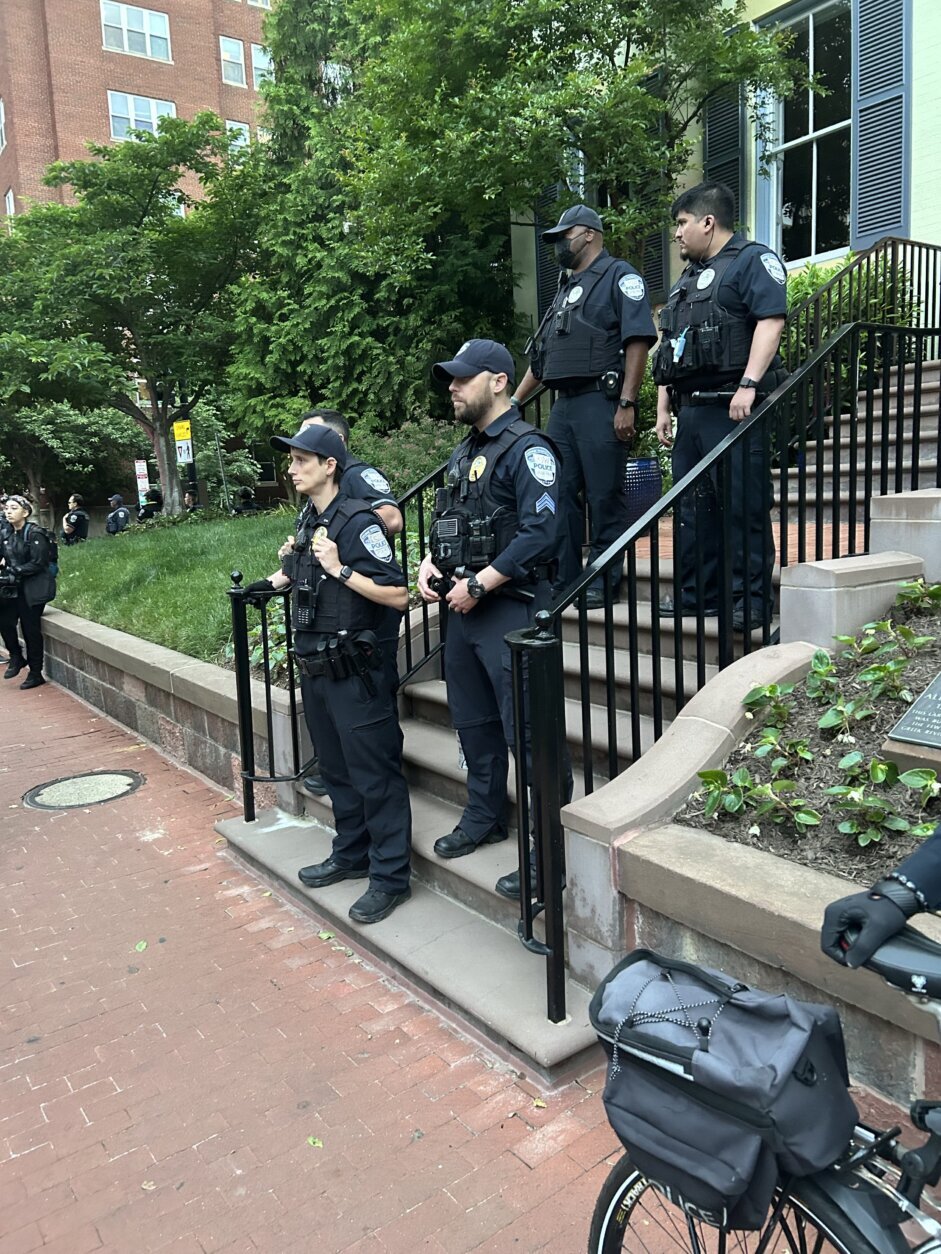
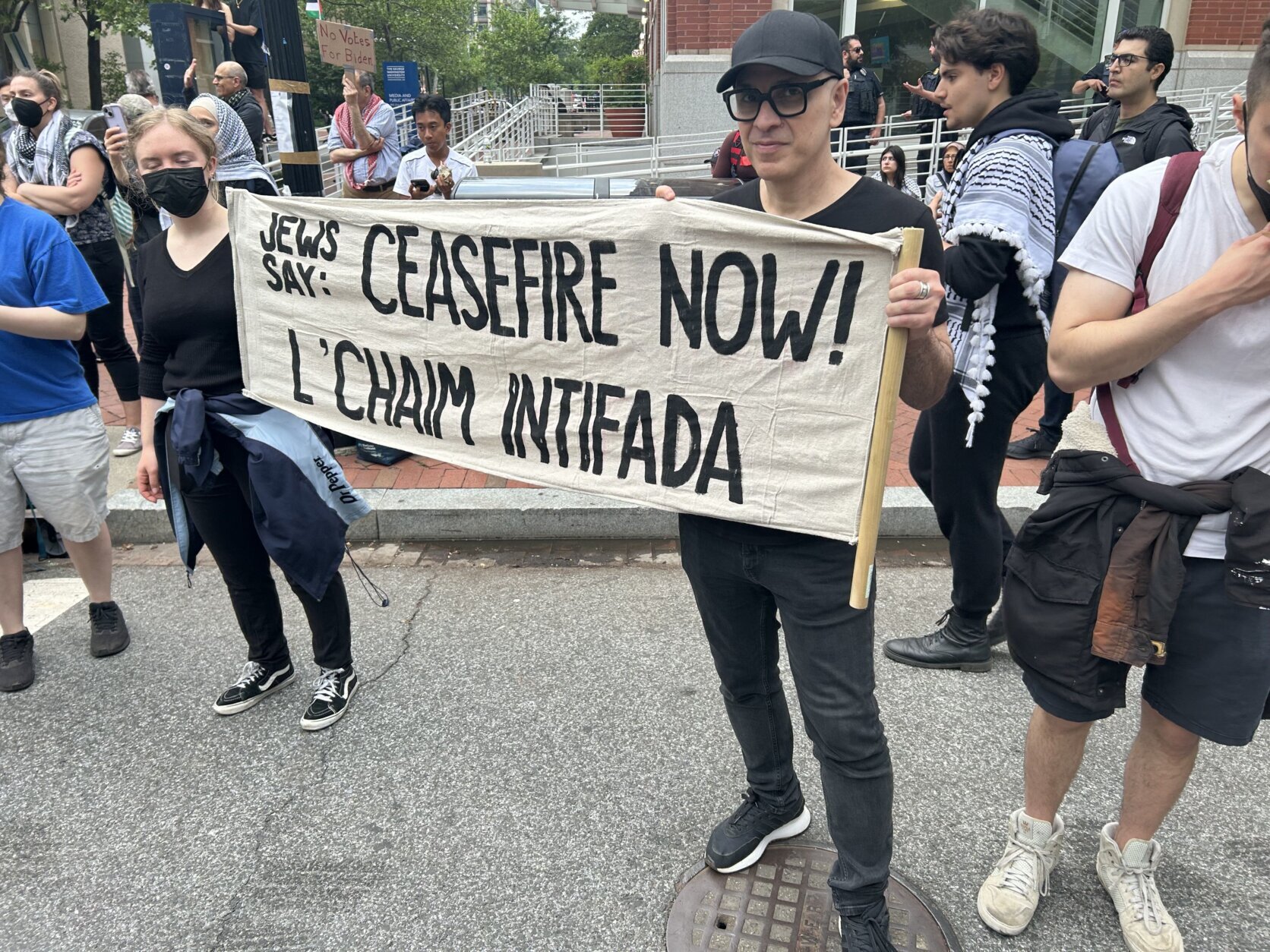
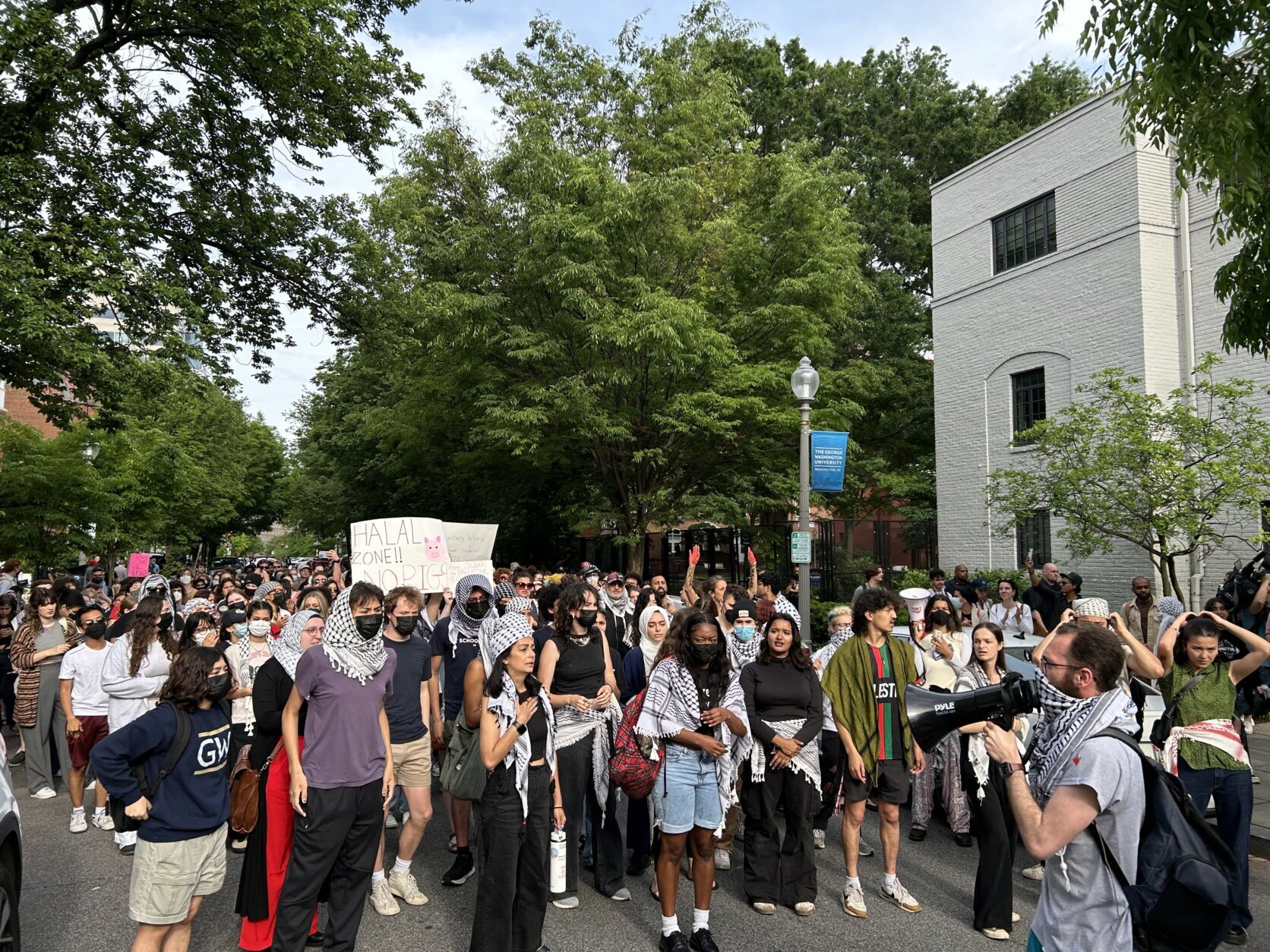
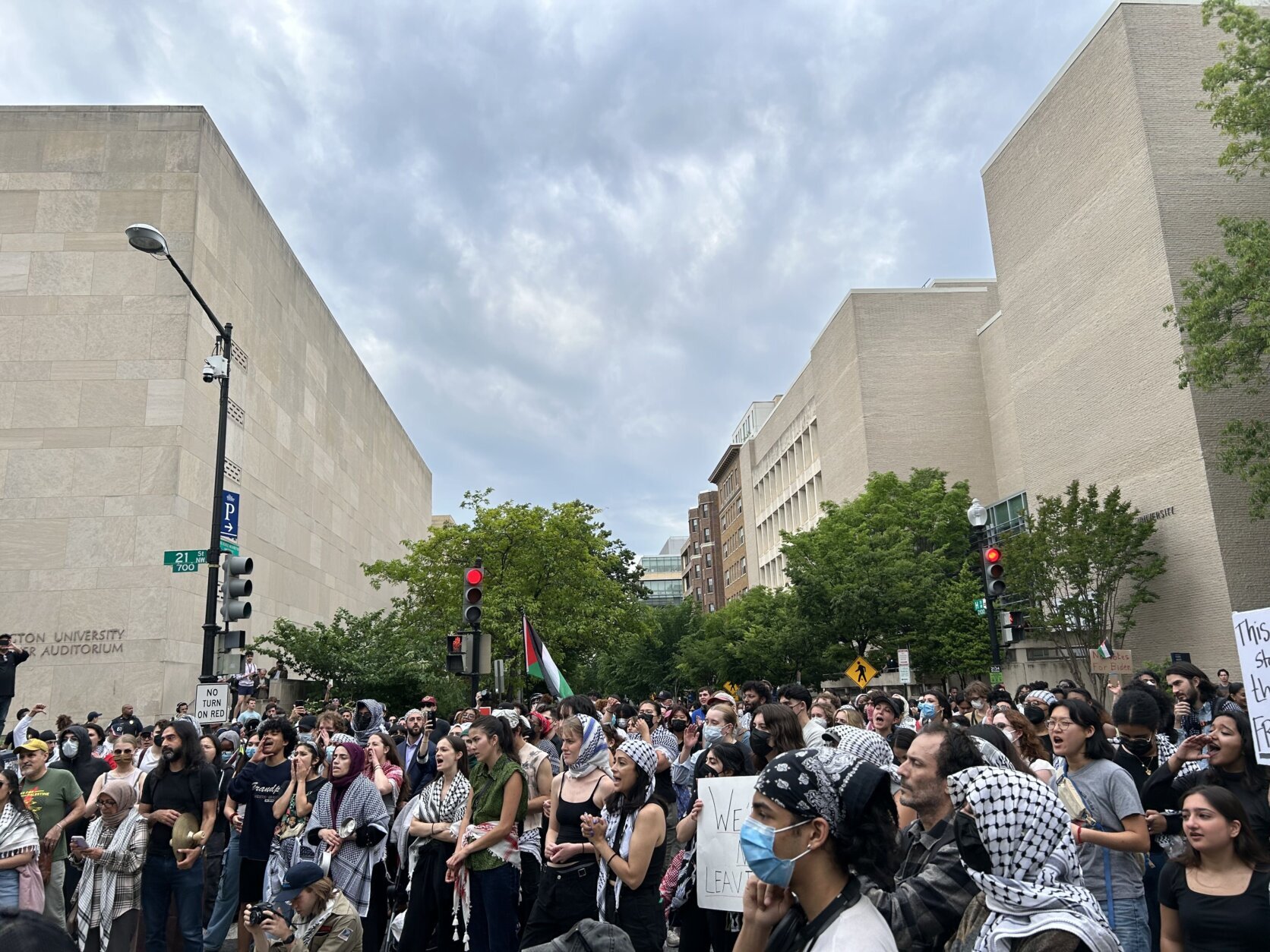
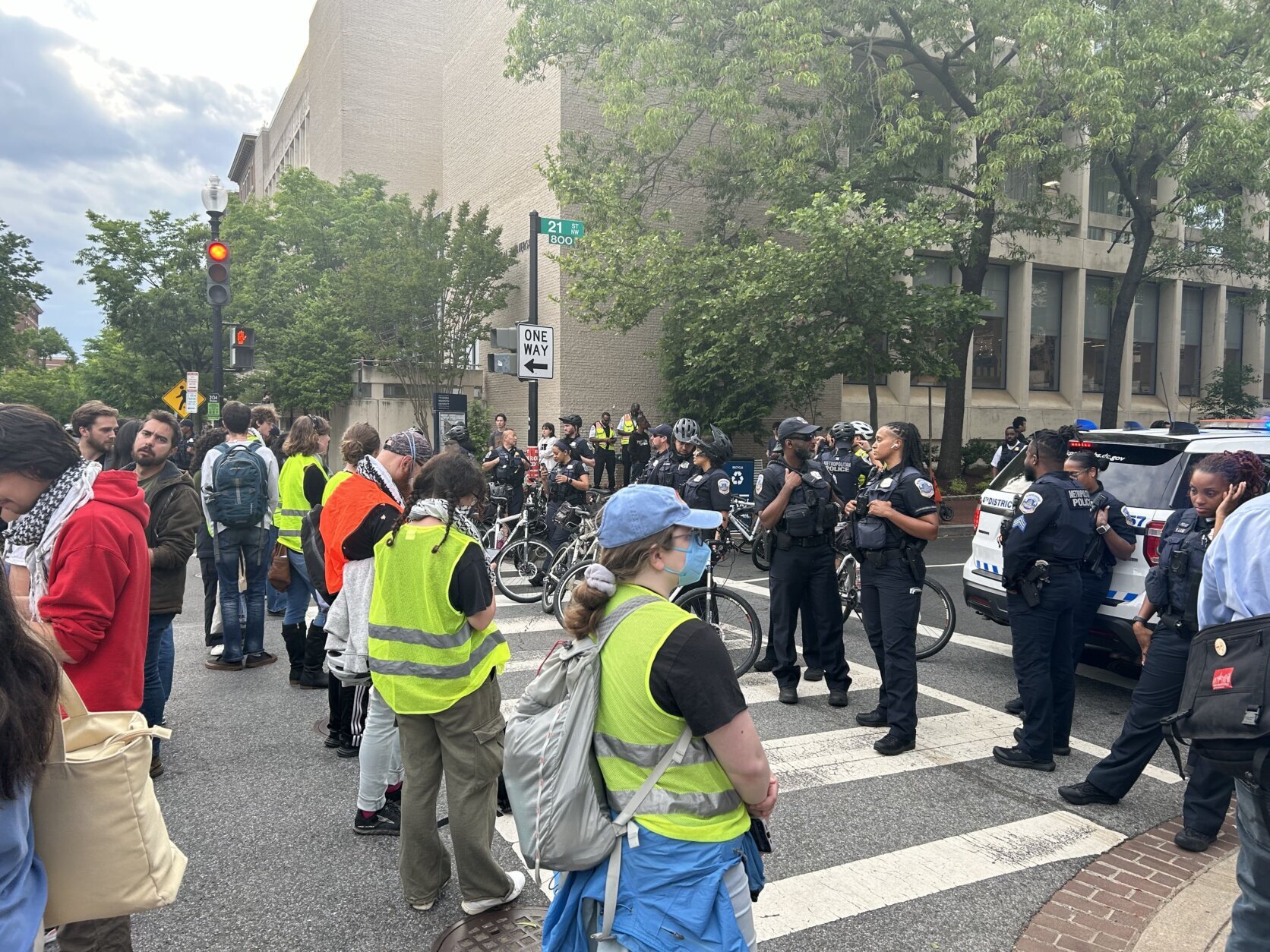
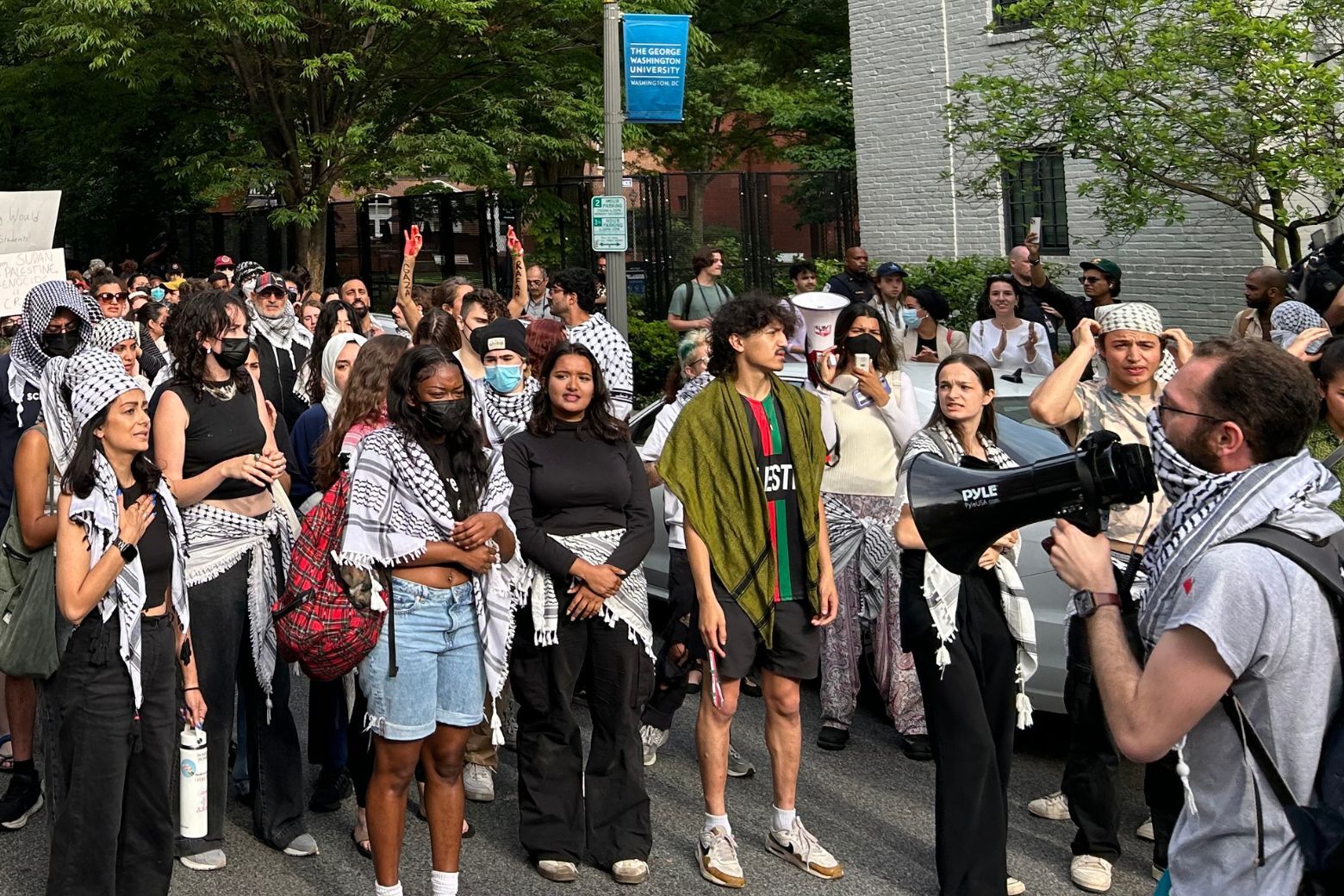
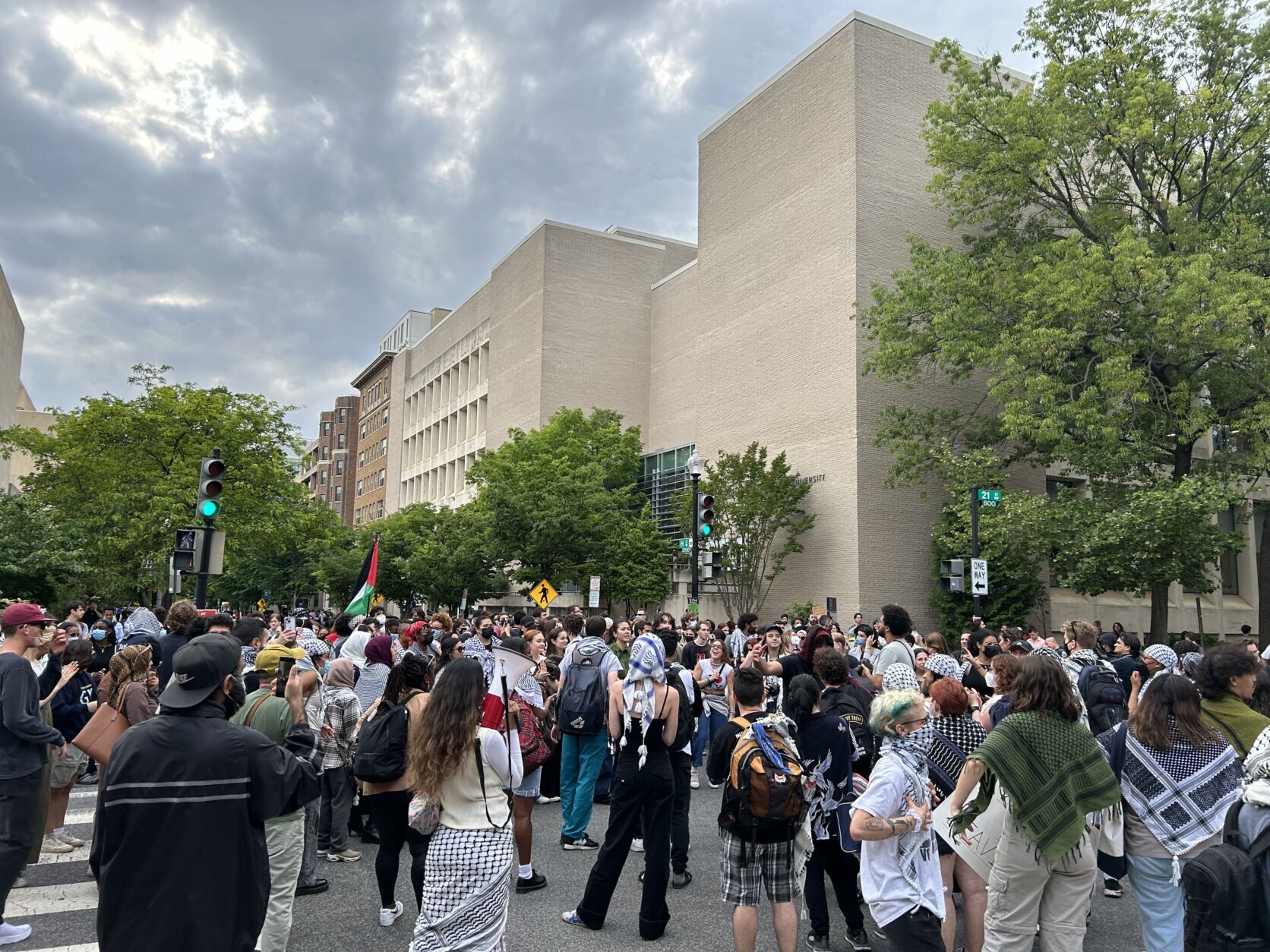
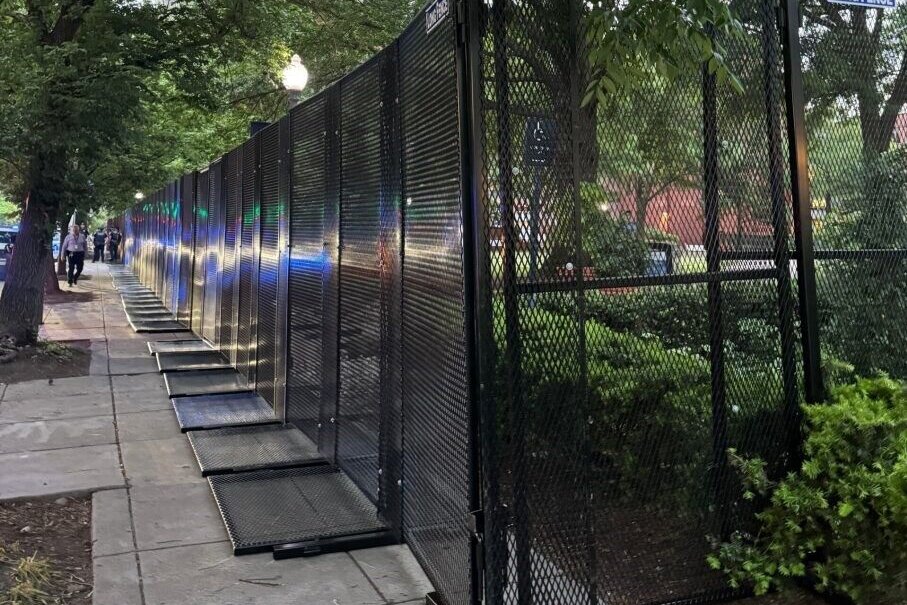
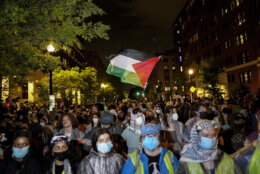
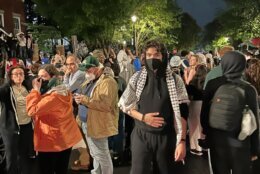


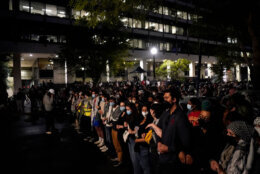
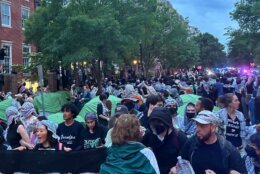
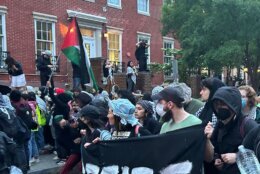

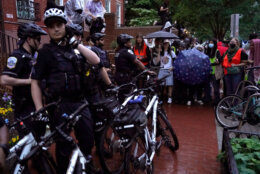
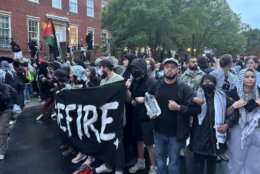
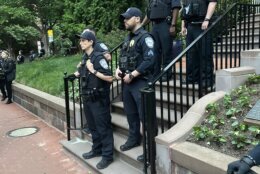
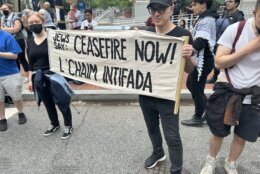
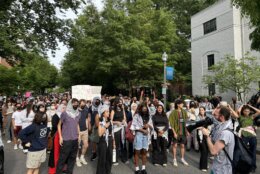
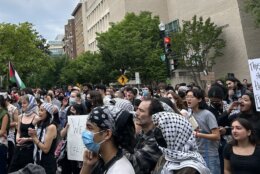
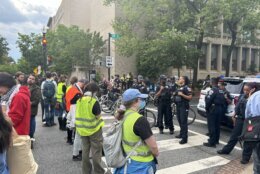
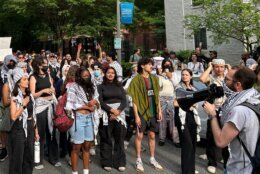
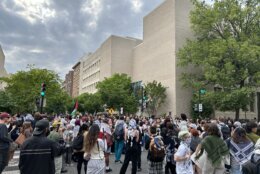
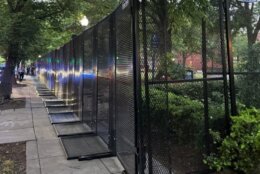
As the campus encampment approached the two-week mark Wednesday, D.C. police broke up the gathering and arrested 33 pro-Palestinian demonstrators. Six of those arrested are current students, the university said in a statement Thursday.
After that clearing of the tents, dozens of protesters came back to campus and gathered at the intersection of 21st and H Street early Thursday evening before marching to F Street at around 8 p.m.
Seemingly peaceful
The group carried signs that read “We are not leaving” and chanted “Free free Palestine.” Marchers paused in front of the residence that’s traditionally occupied by the university’s president, Ellen Granberg, and chanted outside the home.
Then, they marched down F Street, where several administrative offices are also located — including Granberg’s office.
That’s where protesters put up nine tents, The Hatchet reported. Some participants also climbed the brick entrance to a university building nearby the tents.
Dozens of D.C. police officers, some on bikes, gathered on F Street and the surrounding area.
WTOP’s Scott Gelman reported a brief moment of pushing and shoving earlier in the evening when police on bicycles appeared to be attempting to control a sidewalk in front of a university building.
Outside of that scuffle, the protest appeared to have remained peaceful.
WTOP has reached out to the university for comment. D.C. police told WTOP the department is monitoring the First Amendment activity.
Protesters are back. Here’s how students are reacting
Among those in the crowd on H Street was GW student Reem Lababdi, who told WTOP she was pepper sprayed in the back by D.C. police but not arrested Wednesday.
“We said we weren’t leaving and we meant it,” Lababdi said in reference to the encampment. “We will not be pushed aside when our administration is funding the genocide of our people.”
Students from other nearby colleges, including American University, George Mason and the University of Maryland took part in the protests on GW’s campus.
Lababdi said protesters are there to send a message to Mayor Muriel Bowser, congressional lawmakers and Granberg, whom she criticized for allegedly declining to meet with student protesters.
“She would sooner brutalize her own students than come to the negotiating table with them,” Lababdi said.
But there’s division among GW students about the protests.
David Delarosa, a GW student, told WTOP he encountered protesters on H Street while returning home from work Thursday.
“We have students here who just want to go to work, want to go finish their finals, go home, enjoy their summer,” he said. “It’s ridiculous.”
Protest organizers have called accusations that the demonstrations are antisemitic “baseless.” But some Jewish students have said they feel intimidated by the protests.
“Jews like myself feel threatened, they feel scared, and we just want to live our lives,” he said.
Barriers around site of former encampment
The events Thursday come after fencing was installed around the GW’s University Yard. The fence barriers, standing over 10 feet tall, resemble those put in place around the Capitol building after the Jan. 6, 2021, insurrection — and are now blocking all entrances of University Yard.
This video is no longer available.
It is unclear how long the fences are expected to remain around the area.
When asked at a Wednesday news conference whether the encampment clearing meant there would be no more protests on GW’s campus, D.C. Police Chief Pamela Smith said it was Granberg’s decision “to determine if she will allow protests in other areas of the campus.”
Smith said that no protests will take place in the now-secured area.
Smith said there were many indicators that the protests were becoming more volatile, outlining intelligence that officers had been collecting over the days leading up to Wednesday. One of the concerning indicators Smith mentioned was that non-students were joining the protests on campus and had been found in secure campus buildings.
Granberg also said in a statement over the weekend that the protest had “been co-opted by individuals who are largely unaffiliated with our community and do not have our community’s best interest in mind.”
Arrest records show that the 33 arrested protesters ranged in age from 18 to 33 years old.
PHOTOS: See how the GW University pro-Palestinian protest evolved
Tensions have continued to ratchet up in standoffs with protesters on campuses across the U.S. — and increasingly, in Europe — nearly three weeks into a movement launched by a protest at Columbia University in New York.
Some colleges cracked down immediately on protests against the Israel-Hamas war. Among those that have tolerated the tent encampments, some universities have begun to lose patience and call in police over concerns about disruptions to campus life, safety and the involvement of nonstudents.
Since April 18, just over 2,600 people have been arrested on 50 campuses, according to figures based on reporting by The Associated Press and statements from universities and law enforcement agencies.
The Associated Press and WTOP’s Scott Gelman, Emily Venezky and Cheyenne Corin contributed to this report.
Get breaking news and daily headlines delivered to your email inbox by signing up here.
© 2024 WTOP. All Rights Reserved. This website is not intended for users located within the European Economic Area.





